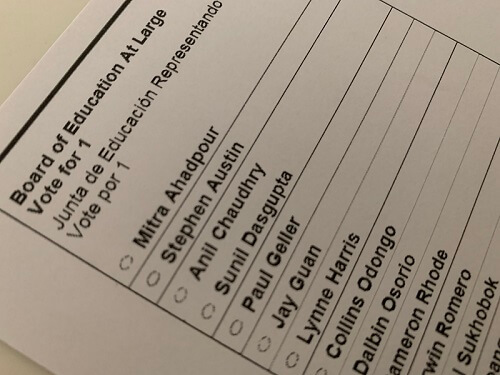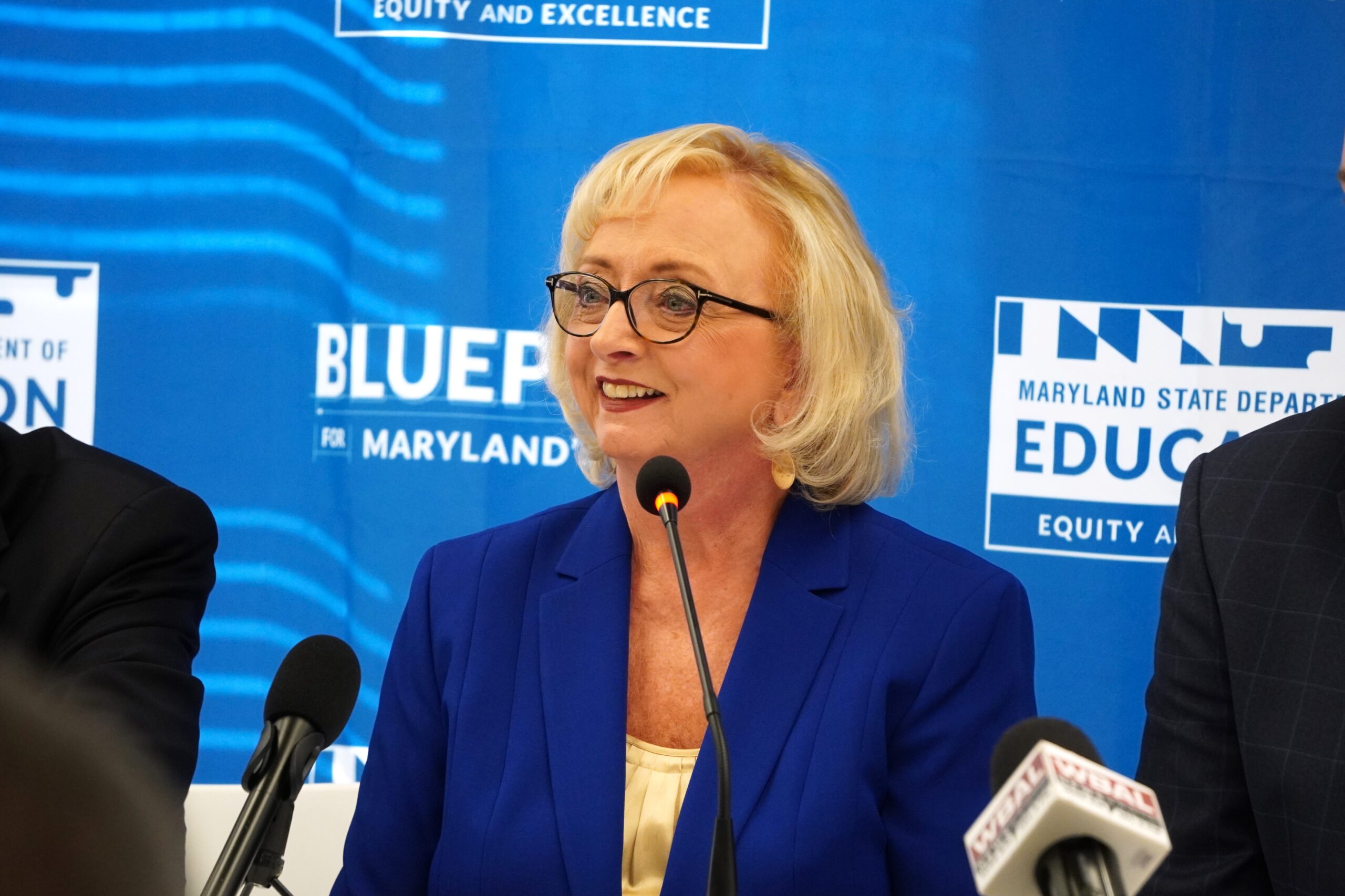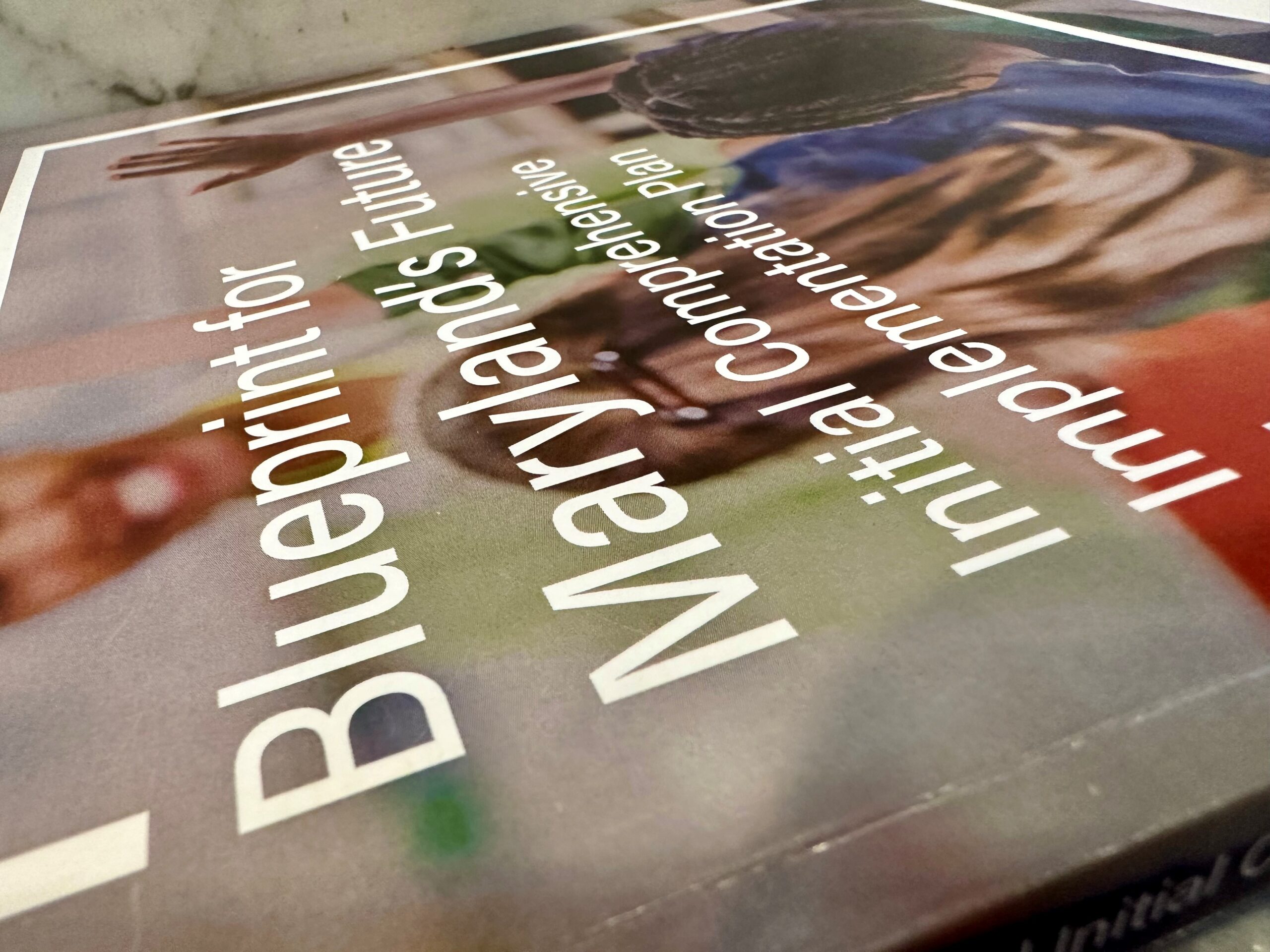Opinion: School Board Candidate Responds to ‘Outrageous’ Claims in Md. Matters Commentary

I am a husband, father, former FARMS (low-income) student and former substitute teacher. I am a current candidate for the at-large seat on the Montgomery County Board of Education and I believe in diversity and inclusion, increasing teacher pay, adding more school nurses, LGBTQIA+ rights, expanding resources for lower-income students, innovative budget solutions that don’t negatively impact working families, and –- this is where I most differ from my rather vocal opponents –- that students should be able to attend the schools closest to their homes if they want to.
I am not at all a Donald Trump supporter, right-winger, homophobe, segregationist or any of the other deeply disturbing claims my opponents and their supporters have desperately tried to construct about me to try to discredit my campaign. Continuing this pattern, they made another outrageous claim last week that I am “anti-immigrant.” In truth, I am married to an immigrant [“Opinion: Fomenting Fear and Division in Montgomery County,” Maryland Matters, May 1].
My wife and I fund a scholarship for low-income students studying fine arts. I also run a Facebook group of almost 8,000 residents, taxpayers and parents who are concerned about the recent direction the Board of Education has taken to redraw school boundaries — particularly because of the board’s lack of transparency and lack of community engagement.
My supporters come from across the political spectrum and transcend racial, ethnic, LGBTQIA+ and socioeconomic lines, which is why my group has the momentum it does. Many group members are immigrants (like my wife) and non-native English speakers (also like my wife); some are political refugees. My campaign leadership team, which consists of five Democrats, two independents and three Republicans, includes progressive liberals. Zero team members are Trump supporters.
When I considered becoming a candidate for the Board of Education, I was surprised when people told me things such as “They’re going to try to wreck you” or “They will come after your kids.” I wasn’t afraid. I’m a regular dad who doesn’t tend to offend people in my daily life, unless you find dopey dad jokes problematic, which my 8-year-old son and 13-year-old daughter sometimes do.
But they were right. My daughter, proud of me for taking a stand, Googled me one day. She came to me in tears to ask, “Why are people saying such mean, untrue things about you?” That hit home.
Politics can be a bloodsport, but the attacks have been baseless. The opposition groups are using a Trumpian strategy of ignoring facts and promoting untruths while my campaign is based on facts, data, fiscal responsibility and public accountability. They are attacking my character and my supporters because my message is resonating strongly with so many residents.
My platform starts with a simple premise: The highest goals of the BOE should be to educate all students and work as hard as we can to close the achievement gap. The board’s current analysis of school boundaries would be acceptable if it were about weighing various factors (proximity, capacity, stability and diversity) equally, as has always been the case. However, the board recently changed its Policy FAA (rules about how school boundaries should be decided) — in a highly suspect and underhanded manner, which is the subject of a lawsuit — to prioritize diversity above proximity, capacity and stability.
I agree that diversity is an important factor, but I believe the board should also equally consider the other three factors when assigning children to schools. By the new Policy FAA logic, students could be required to attend schools that are farther away from home solely to make a school’s population more diverse. Yet the BOE-commissioned boundary analysis (done by New York-based WXY Architecture + Design) found that 79% of Montgomery County schools are diverse, based on factors MCPS uses: race and ethnicity, socioeconomic background and English language proficiency.
Indeed, in the BOE’s first application of the new policy, its Clarksburg upcounty study resulted in plans to move children without their parents’ consent from their nearest school and bus them to a school farther away beginning in August. A recent commentary accused me of “fearmongering” because I stated that the Policy FAA change and the original intention of the BOE’s boundary analysis would result in increased bus time for students.
But it is not “fearmongering” to say that these policies result in increased busing — it is fact. It will happen in Clarksburg in less than four months (unless the pending lawsuit is successful). My opponents do not want to admit that there is simply no way for Montgomery County to put extra weight on diversity in future boundary studies without having to move kids longer distances. The BOE’s own commissioned Boundary Analysis Interim Report admitted as much.
So why are my opponents so angered by my candidacy? They want to reassign our children to different schools, but they know that my group has data on our side. We can agree that closing the achievement gap should be a main goal of MCPS, but the evidence-based data from more than 50 years of research is emphatic: Studies show that moving kids around simply will not close the gap. Even MCPS’ own commissioned study, published in October 2019, came to the same conclusion.
And as stated by MCPS Superintendent Jack Smith during a September 2018 BOE meeting:
“Frankly, I’ll just be very blunt here. The geographical location, the other students in the school, the families in the school – all of these can exist and still have low levels of learning no matter where you are. And I am going to show you some data tonight and I can show you some data right now where you have 30% range of poverty across 3 elementary schools and you have exactly the same performance – high performance, low performance across the schools. The secret is in what happens in the classroom, in that hallway, in that school building every single time.”
Let’s reach the people in those classrooms, in those hallways, in those buildings. Let’s get all teachers the proper resources, pay and respect they deserve. Let’s get all MCPS students the education they need without unnecessarily taking the anchor of their community school out from under them.
In a time when our budget is about to be seriously constrained, why would the BOE commit precious resources to changing students’ schools in a way that would disrupt families; potentially damage children’s mental health and well-being; increase commute time, which means decreasing sleep time and adding more high school drivers on the road – and yet would not effectively close the achievement gap? Our efforts should be focused on improving schools. Not political optics.
Fortunately, there are many examples of programs that are effective – some from our own MCPS schools – that I am committed to pursuing. My supporters and I are simply proposing to let families opt to stay in their neighborhood schools while we use actual data to determine road-tested, successful methods for closing the achievement gap. This should not be controversial.
My most vocal opponents apparently believe otherwise. In an email discussion about boundary changes with candidate Sunil Dasgupta, among others, candidate Lynne Harris wrote, “wouldn’t it be interesting if NOBODY knew which school their student would attend… if every year, or every time you got ready to move to the next school in the link –ES, MS, HS, –it was a role [sic] of the dice?” I am pretty sure most MCPS parents would not want to “roll the dice” to determine where their children go to school.
I would like to directly address the most alarming claim that opponents made about me. I have always been a strong LGBTQIA+ advocate and will always give my wholehearted support to the LGBTQIA+ community. As an example, the priest who baptized my son is gay; he and his husband remain dear family friends. As a board of education member, I would continue not only to support but also to advocate for LGBTQIA+ students, teachers, administrators and staff.
My opponents suggest that I’m not an LGBTQIA+ supporter because the lawyer suing the BOE regarding the FAA policy change on behalf of Clarksburg parents was connected with a group that 16 years ago tried to keep some information about LGBTQIA+ issues out of the health curriculum. I have never met or spoken with this lawyer; I am not a plaintiff in the case; and I am not involved with the case, though I did promote the Clarksburg parents’ fundraising efforts. I am in favor of enhancing and expanding education on LGBTQIA+ issues in the MCPS health curriculum.
My campaign slogan is “Great Neighborhood Schools FOR ALL.” But not all of that slogan fit on my campaign signs. Those who seek to discredit me, called this a “dog whistle.” My slogan aligns with that of Montgomery County Education Association, the teachers union that does laudable work in the county and has used the signage “Great Schools = Great Neighborhoods.” It also aligns with Montgomery County Public Schools-commissioned literature, which states, “MCPS strives to create neighborhood schools.” My slogan is intended to unify, not to divide.
I have never attacked my opponents personally or suggested they are something they are not, and I won’t run that kind of campaign.
Until now, I have stayed focused on my campaign’s issues. But I will defend myself against the gross mischaracterizations that have been posted online because every MCPS student — whether they are my middle school daughter or any of the other approximately 165,000 children attending schools in this county — should know that I have their best interests at heart and, as a board of education member, will pursue common sense solutions that actually work.
— STEPHEN AUSTIN
The writer is an at-large candidate for the Montgomery County Board of Education.




 Creative Commons Attribution
Creative Commons Attribution